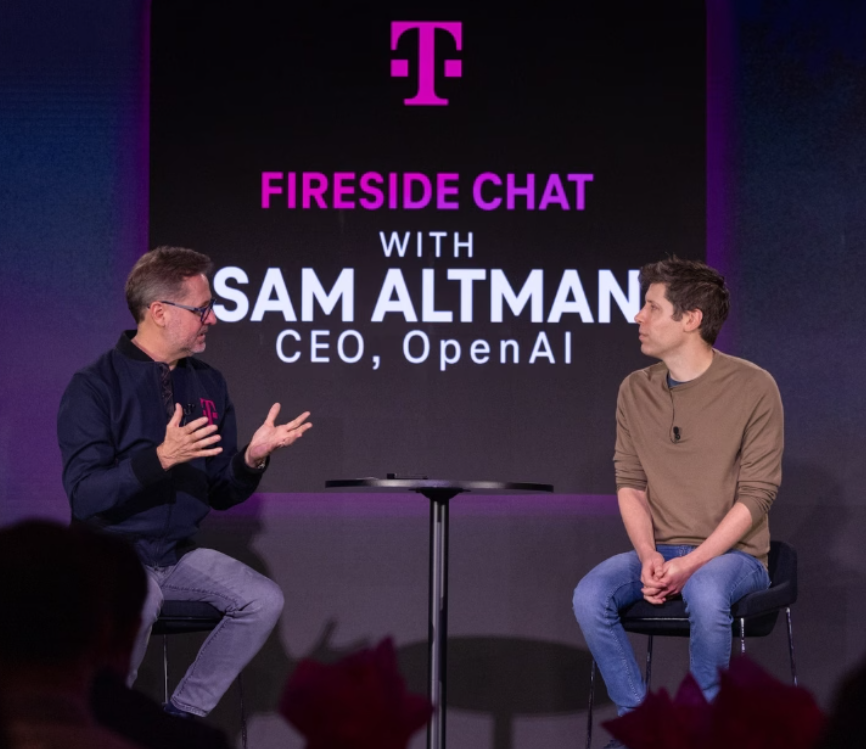T-Mobile said it is custom building an "intent-driven AI-decisioning platform called IntentCX with OpenAI. The partnership with OpenAI was part of a broader AI push by T-Mobile.
The partnership between OpenAI and T-Mobile is notable on a few fronts. First, the OpenAI deal with T-Mobile highlights the frenemy arrangement with Microsoft. In addition, the T-Mobile-OpenAI deal comes a day after Salesforce CEO Marc Benioff ranted against do-it-yourself approaches to generative and agentic AI.
Under the OpenAI and T-Mobile deal, the companies will combine the wireless carrier's data on intent, customers and sentiment in real time and couple it with OpenAI models. The two companies said they will continual to collaborate to develop AI services and tools as part of a multi-year improvement.
According to the companies, IntentCX will do the following:
- Apply understanding and knowledge to every interaction.
- Resolve issues and take proactive actions.
- Maximize T-Mobile customer journeys and ultimately provide a blueprint that can be commercialized to other industries.
- Personalize service with a combination of humans and digital agents.
- Navigate multi-threaded conversations across languages with context.
- Take action autonomously where needed.
- Tap into OpenAI's latest models to improve engagement.
IntentCX will be trained in T-Mobile's customer care and team of experts business processes as well as billions of data points from customer interactions.
 In a statement, T-Mobile CEO Mike Sievert said:
In a statement, T-Mobile CEO Mike Sievert said:
"IntentCX is much more than chatbots. Our customers leave millions of clues about how they want to be treated through their real experiences and interactions, and now we’ll use that deep data to supercharge our Care team as they work to perfect customer journeys."
For OpenAI CEO Sam Altman, the T-Mobile deal could pave the way for industry-specific platforms leveraging its models. T-Mobile said it is actively testing IntentCX with implementation on tap for 2025.
- OpenAI launches GPT-4o fine tuning
- Moderna uses OpenAI's ChatGPT Enterprise to scale 750 GPTs
- OpenAI releases o1-mini, a model optimized STEM reasoning, costs
- OpenAI's GPT-4o: A look at short-term, mid-term and long-term implications
Along with the OpenAI deal, T-Mobile announced the following:
- A technology partnership with Nvidia, Ericsson and Nokia to leverage AI in mobile networking infrastructure. The AI radio access network (RAN) will combine T-Mobile's 5G expertise with Nvidia AI Aerial platform and networking knowhow from Ericsson and Nokia. This effort will increase speeds and leverage AI to bolster gaming, video, social media and augmented reality.
- A plan to enable AI customer experiences and grow market share. T-Mobile aims to reach 12 million 5G broadband customers by 2028 using excess capacity, a more than 50% increase from its previous target of 7 to 8 million customers by 2025. Service revenue growth is expected to have a compound annual growth rate of 5% between 2023 and 2027. AI and efficiencies are expected to boost adjusted Ebitda and cash flow. T-Mobile projected $18 billion to $19 billion in adjusted free cash flow in 2027.
- T-Priority, a network slice for first responders.
Related:
- Disruption is coming for enterprise software
- Enterprise software vendors shift genAI narrative: 'GenAI is just software'
- The generative AI buildout, overcapacity and what history tells us
- Enterprises start to harvest AI-driven exponential efficiency efforts
- GenAI may be the new UI for enterprise software
- Education tech in turmoil amid genAI: Why consolidation is next
- 14 takeaways from genAI initiatives midway through 2024


